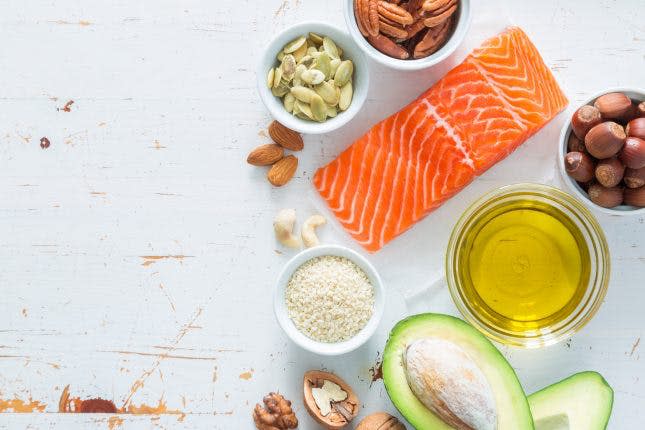4 Myths About Protein That Are Likely Affecting Your Diet
Ever since the first time your parents made you sit at the dinner table until every last bite of vegetables was gone, people have been giving you guidance — some of the gentle variety, some not so gentle — about what and how much to eat. As far as we can tell, protein is a recurring theme. Trendy diets seem to constantly tout the benefits of high-protein eating… and every time we go to the supermarket, there are about 18 new brands of protein bars or protein-fortified something else to choose from. Do we really need all of this protein? Are we eating too much? If we indulge in a lot of protein, are we going to gain weight or suddenly get ripped with muscles (because that’s another rumor going around)? Clearly, we have some questions.
Thankfully, there are other people with answers and health experts who can help us break down what’s true and what’s false when it comes to how much protein we should be eating and how that protein’s going to affect our bodies. Here are four so-called “facts” about protein that we’re here to debunk.

1. A healthy diet requires a lot of protein. When it comes to dietary protein, many of us are under the impression that more is more. Not so! According to the most recently released Dietary Guidelines for Americans — this edition is meant to last until 2020 — people over the age of 19 should be consuming between 10 and 35 percent of their caloric intake as protein. Research from an international protein summit and reported in the Harvard Health Blog suggests a similar guideline — 15 to 25 percent of daily calories should be protein. While these percentages aren’t entirely insignificant, they do suggest that our obsession with packing as much protein into our diets as humanly possible might be misplaced.
2. A high-protein diet promotes weight loss. Increasing your protein intake isn’t a surefire way to drop the extra pounds you’ve been trying to lose. “Calories are calories, no matter which macronutrient you get them from, and we know that reducing [all] calories promotes weight loss,” per Stephanie Perruzza, in-house registered dietician at KIND Snacks. Protein can increase feelings of fullness and reduce unhealthy snacking, but protein-laden calories are no leaner than the rest.
3. Eating more protein equates to having more muscle. “Most people think if you eat enough protein, your muscles will uptake that protein and increase,” Perruzza says. The truth is that, while eating protein can aid in muscle synthesis, it’s not going to make you buff all on its own. Physical activity and weight training is the way to go if you want to get more muscular — but your efforts at the gym will be a lot more effective if you eat a well-balanced diet that includes healthy levels of, yes, protein.
4. It’s important to combine protein sources at meals. Like us, you may have heard that the best way to fully reap the benefits of dietary protein is to mix up your protein sources at the same meal — with combos like rice and beans — so you’re getting all of your essential amino acids at once. These amino acids are the building blocks of protein, and our bodies can’t produce them on their own. According to Perruzza, the nutrition community has debunked this myth in recent years, determining instead that a variety of protein sources is important over the course of a day, not a single meal.
What’s your favorite way to get your protein? Tweet us @BritandCo.
(Photo via Getty)
You Might Also Like


